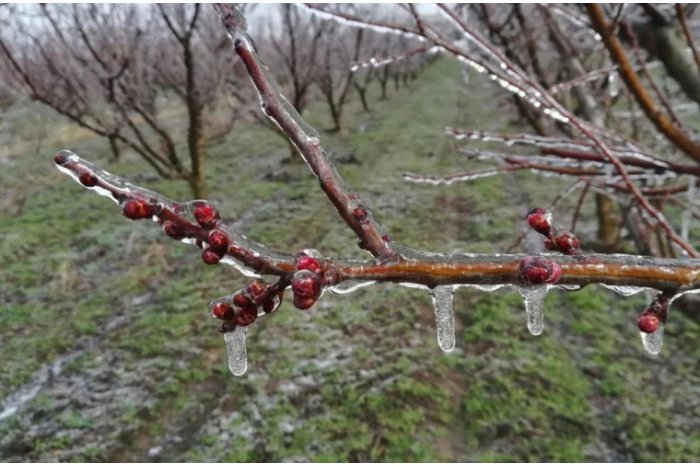Specialists warn about risks of frosts in Moldova in spring, solutions recommended
17:18 | 31.03.2023 Category: Economic
Chisinau, 31 March /MOLDPRES/ - The Agriculture and Food Industry Ministry (MAIA) has warned about the risks and measures of preventing frosts. The warning comes, given the information presented by the State Hydrometeorological Service (SHS) on the likelihood of registration of soil frost.
According to agriculture sector specialists, the decrease in the air temperature nearby the soil under 0 Celsius degrees on the warm period of the year (period of crops’ vegetation) negatively affects the development of plants and sometimes prematurely finishes the vegetation cycle or even leads to the death of plants.
„In the fruit growing sector, the frost harms much the fruit trees in blossom, destroying the entire harvest sometimes. The apricot trees, peach trees, cherry trees, sweet cherry trees, apple trees, nut trees and hazel-nut trees are exposed to risk most of all. Also, the vine plantations are hit, especially the early varieties. The field crops are affected to a lower extent by the late spring frost and have a lower sensitivity to frost. In most cases, the critical moments in the vegetative cycle take place outside the frost periods. Only in rare cases, when the frosts come about too late, the field crops are hit at a higher level,’’ MAIA said.
The late spring frosts are dangerous especially for the warmth-loving crops and the vegetable ones in the early phases of their growth. The likelihood of the hitting of sprung plants of maize by frosts, depending on the terms of sowing, is in 5-10 per cent of the years. The likelihood of the harming of sunflower plants and sugar beet during their springing is not high and is possible only in northern Moldova districts. The just sprung spring cereals are quite resistant to frost and bear the decrease of the air temperature to -7 - -9 Celsius degrees.
Photo: SHS

